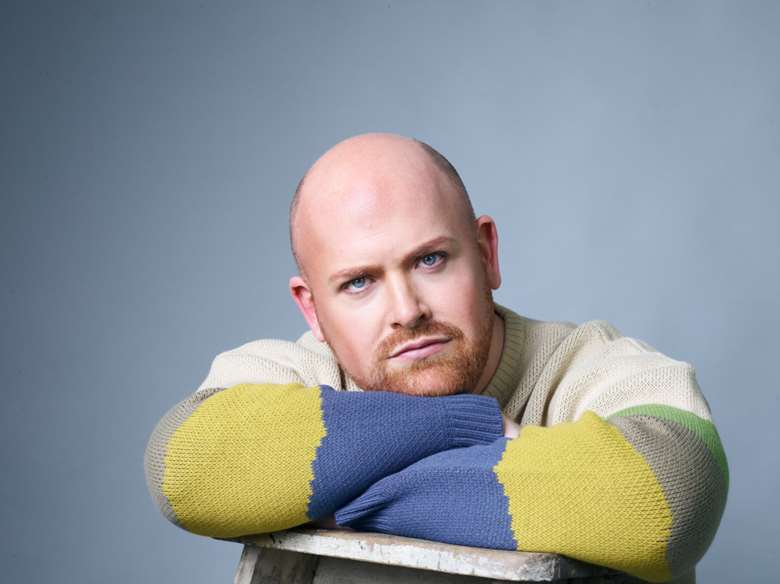My Father’s Son: How becoming a father inspired tenor Nicky Spence’s upcoming recital
Nicky Spence
Wednesday, June 11, 2025
‘Fatherhood made me rethink everything – including how I hear and sing’

As we waited for the arrival of our son Baird, it brought up so many memories of and emotions about my own childhood. It was the catalyst a year ago for our programme – My Father’s Son – originally intended for Wigmore Hall last year. It was my preparation for the biggest role of my life. Though this narrative recital uses the words of others, it might as well be autobiographical. Now Baird is an engaging one-year-old, I can see how transformative this trip to parenthood has been. My priorities have been completely up turned. That smiling face melts away any of those anxieties, niggly imperfections that singers agonise over. Fatherhood has given me a new perspective and above all it has given me a glorious anchor.
Of course the idea of becoming a parent has fertilised many the imaginations of composers and poets alike, and if allowed my programme to take in every voice I discovered on the subject, I’d have the gestation of an elephant as opposed to the human being I was aiming for.
Many psychologists believe that babies arrive in a desert when they’re first born. They’re lost and know nothing before that moment when they’re ideally scooped up and shown love and boundaries to make them feel safe and cherished. In our first pairing of Howells and Britten, we find a young boy looking for a ballast in the storm of early life and mysterious familial circumstance. The father leaves through the hypnotic rocking ballad of Faure’s Les berceaux and the idea of him is laid to rest in Tippett’s dramatic retelling of Full fathom five, originally used as stage music in The Tempest at the Royal Shakespeare Company. The cliché of it taking a village to bring up a child is explored through the music of Glaswegian-born Buxton Orr in an excerpt from his Songs of a Childhood and the touching Scots sentiment of our Shy Geordie. This incarnation of the boy leans into his fatherless home before turning rogue in Rzewski and Britten’s miniatures which even feature spoken dialogue from the pianist. Talk about badly behaved!
Later we are meet a seemingly evolved boy looking for love. The trauma of childhood may make him question future ideals of stability through the dance of Tchaikovsky’s waltzing apparition before the reticence gives way to a panting self-soothing love-bombing exercise in Wolf’s Italianisches Liederbuch which even does wonders for the Italian tourist board. Fauré penned this next wedding scene as a serving suggestion for his desired love which, through a rippling idealistic prose, calls the stars, who eventually anoint their love and so ground the loving pair in the reality of their union. The returning soundscape of Britten and Hardy’s Winter Words ushers in ‘baby-making’ music through the guise of many birds, and the results of their chirrups are awkwardly announced in Libby Larsen’s fantastically colloquial Pregnant.
I feel as if parenting begins the moment your baby is conceived in your mind. If that’s the case, then with that miraculous moment promptly arrives a level of accompanying worry reserved solely for new parents. My fathering imagination is fierce and could compete with many of the world’s most extravagant fiction writers. The music of Wood, Loewe, Britten and Wolf opens our mind to a parent’s wildest fears, earthy pressures and the laughable absurdity of growing another human being in this current world.
For as long as I can remember, when I thought of my future, it was holding a baby. Waiting for that wee person to arrive was like waiting for what I thought was my big change. A chance to embrace that symbol of collaborated love, hoped for, wanted, a chance to heal a past, right some wrongs and maybe even try again. That simplicity of newness in Yeats’s request set by Dunhill in the Cloths of Heaven is echoed in Ireland’s Baby which is in stark contrast to Schumann’s oft-trod outpouring for a new arrival and how jealous a man must be to never know a mother’s happiness. The ever-evolving joys of modern science, dear reader. For balance, although Schubert didn’t sire any of his own Kinderlein, here he manages to perfectly encapsulate the feeling of a father holding his newborn for the first time. Once felt, a sensation you would not surrender for the whole world.
An adage of parents is to remark that ‘the nights are long but years are short’, so in tribute to those magical mitternachts I propose – in the style of Masterchef – a lullaby cooked six ways. From Robert Burns turning left at Ruckert and on to the musings of Tim Minchin, we wonder together: Will there really be a morning again?
Thankfully Baird has been a good sleeper but with that there’s the joy of the early morning. With both parents as musicians out in the evening, that is more the challenge and of course, the endless juggling of childcare too. One time in desperation, we had to bring him along to the Green Room and mid-performance he gave us a wonderful surprise crawling onto the platform to steel the limelight. Let’s see whether he makes an appearance at Thaxted Festival on Sunday 22 June!
'My Father's Son' accompanied by Dylan Perez is on 22 June at the Thaxted Festival in Essex. For more information, visit www.thaxtedfestival.co.uk











